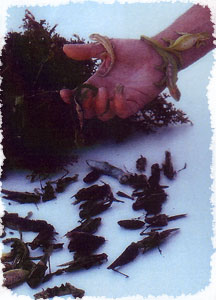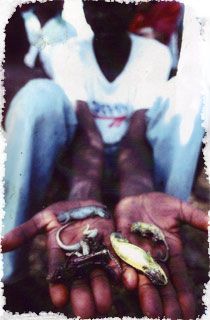Cape Town Wine
  |
Wines which are harvested mechancially are full-blooded rather than full-bodied. The problem isn't specific to Cape town or South Africa, but is rather a global one. Wine is contaminated with bloodThrough the process of mechanical harvesting a variety of animals, reptiles and insects are killed, mashed up and liquidised into the wine. Snakes, mice, kittens, locusts, eggs, birds and caterpillars are torn into pieces, killed and mashed up into the grape juice. Illegal wineA common victim of the mechanical harvesting process in Cape Town is the Cape Dwarf Chameleon (a protected species). Since it is illegal to make a product with a protected species in it, the mechanically harvesting process is not only unethical but also illegal. Vines last 25 yearsThe temperate conditions required for a grape harvest are ideal for a large number of mammals, birds, reptiles and insects. Given that grape vines are only replaced once every 25 years, we can understand how much wildlife make their homes in the vines. Hand harvestingHand picking the grapes is a far more humane method of harvesting. It also provides thousands of unskilled jobs. Mechanical harvestingMechanical harvesting involves a machine straddling the stalks and shaking the grapes off the vines. This process dislodges insects and reptiles which are then included in the harvest. At the factory the harvest goes through a metal destalking screw which not only seperates the grapes from the stalks but also kills all the wildlife which is not already dead.
|
Links
We welcome input to help us improve our coverage of Cape Town Wines